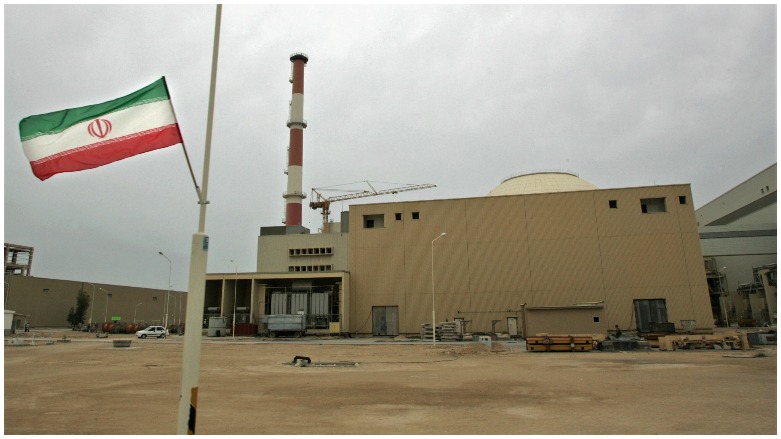French Foreign Minister warns of slow progress in Iran nuclear talks

WASHINGTON DC (Kurdistan 24) – On Tuesday, France’s Foreign Minister Jean-Yves Le Drian, speaking to the French National Assembly, warned that the negotiations in Vienna on restoring the 2015 Iran nuclear agreement were not moving fast enough, given the advances that Tehran is making in its nuclear program, as the talks continue.
Le Drian told a parliamentary hearing that the negotiations were proceeding too slowly and were unlikely to produce an accord “within a realistic time frame.”
They are moving “slow, too slow, and that creates a gap that jeopardizes the chance of finding a solution that respects the interests of all sides,” he said.
“Bits of progress were made at the end of December,” he explained, “but we are still far from concluding this negotiation.”
“The situation is serious, because Iran has advanced to the stage that comes before the final stage,” he continued. The final stage would be 90% uranium enrichment, which generates the capacity to build a nuclear weapon.
Iranian Plot against Trump Officials?
US National Security Council Adviser Jake Sullivan issued a statement on Sunday, unusual in both its substance and timing, as Sunday is a holiday.
“The United States of America will protect and defend its citizens,” Sullivan said, addressing Tehran. “This includes those serving in the United States now and those who formerly served.”
“As Americans we have our disagreements on politics,” he continued. “We have our disagreements on Iran policy. But we are united in our resolve against threats and provocations.”
Sullivan was responding to Iran’s publication the day before of a list of some 50 Americans, whom it was sanctioning. As none has assets in Iran or any plans to travel there, publishing such a list would not appear to be such a significant action.
However, the wording of Sullivan’s statement raised suspicions that the US has intelligence about some Iranian plot against a US official, in retaliation for the US assassination two years ago of Gen. Qasim Soleimani, head of the Qods Force of Iran’s Islamic Revolutionary Guard Corps, as Kurdistan 24 has suggested.
Read More: White House warns Iran; finally says Iran proxies behind attacks on US troops
Asked about that on Monday—does the US have intelligence suggesting an Iranian threat against Trump administration officials?—White House Press Secretary, Jen Psaki, declined to answer.
“I’m not going to get into intelligence here, from the podium,” she said. “But we’ve certainly seen concerning public rhetoric from Iranian officials about individuals from previous administrations, even before [the] sanctions [list] from this weekend, and that’s unacceptable.”
Thus, the issue remains open.
Israeli Concerns
Israeli Prime Minister Naftali Bennett told the Israeli parliament on Monday that the negotiations in Vienna over restoring the Iranian nuclear deal would not constrain Israel’s options.
“Israel will maintain unlimited and unrestricted freedom, everywhere and at all times,” Bennett told the Knesset’s Foreign Affairs and Defense Committee, as he expressed serious concern about the nuclear talks.
“We are certainly concerned” about them, he stated. “It is important for me to say here clearly and unequivocally: Israel is not a party to the agreements.”
US Remains Unclear on Iran Nuclear Negotiations
While both France and Israel expressed pessimism about the status of the Iranian nuclear talks, the US continued to articulate an ambiguous position that is difficult to understand—particularly as to how the administration intends to deal with a situation that it, itself, describes as unsatisfactory.
Asked on Tuesday about the US position, State Department Spokesperson Ned Price replied, “I don’t have a specific update,” before citing its previously-established stance.
“We’ve spoken to the modest progress that we have seen in recent days,” Price said. But “that progress needs to be more than modest, if we are going to be in a position to salvage the JCPOA [Joint Comprehensive Plan of Action—the formal name for the nuclear accord] and to ensure that the nonproliferation benefits that the JCPOA conveys aren’t diminished” or even “eliminated by the advancements that Iran has made in its nuclear program.”
However, Price appeared to blame the Trump administration for the situation rather than articulate a policy to address it.
“Ever since the last administration left the JCPOA, Iran has been able to gallop forward with its nuclear [program],” Price said.
“We were promised that Iran’s proxies would be cowed, that Iran would be cowed into submission by the so-called maximum pressure program,” he continued, “but quite the opposite is true.”
